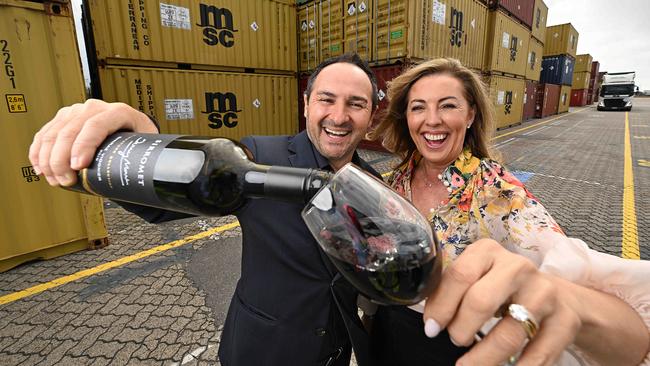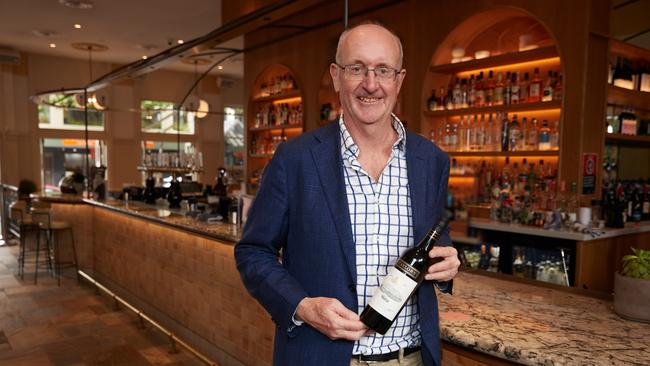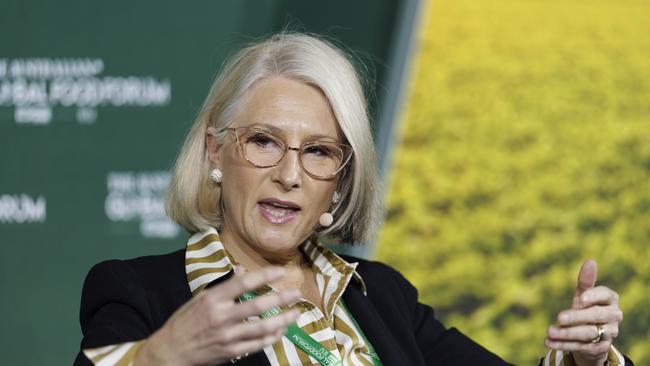Shrinking Chinese wine market is poses new challenge to Australian winemakers
The cafes and restaurants are less vibrant, the bars a touch quieter. The new China market for Australian winemakers will prove a challenge.

When Mitchell Taylor stepped off the plane in China recently it marked a triumphal return to a market his wine had been locked out of for four years due to crippling tariffs.
But as he became reacquainted with old friends and business colleagues he noticed seismic changes in what was once a boom market for Australian wine.
The restaurants and cafes weren’t heaving with the same loud drum beat of diners and revellers scooping up dumplings and downing red wine, there was more restraint when it came to gift giving, ostentatious acts of consumerism were out and modesty was in and the proliferation years ago of liquor stores was now in retreat.
Mr Taylor, whose family owns the Clare Valley winery Taylors Wines, had come back to a market that was shrinking, and while he was welcomed back like an old friend he got the immediate sense that Australian winemakers would need to work harder to recapture customers after an absence from a market that was now also much smaller.
“From what I could tell, I didn’t get the vibrancy of probably what previous trips were like … and many of our distributors and importers said they were under great strain,” Mr Taylor said.

It points to a Chinese economy also under strain, where cost of living pressures too are plaguing households and made worse by a political shift to modesty and frugality being led by communist party officials and taken up by large swathes of the population. This has shown up in recent import data for wine with China importing only $1.6bn of wine last year, down more than 60 per cent from a peak of $4.28bn in 2018 of which a large proportion came from Australian winemakers.
“And the economy has changed significantly,” added Mr Taylor. “I’ve been warned that demand is not as buoyant as it has been, seeing it in the figures that are currently in the market, I think the consumption of imported wines has halved, even when you look at how we were really growing as a category.
“So there is a lot of caution there. And the gifting too, the traditions of gifting (wine) have tightened a bit, you need to be more respectful and they’re not wanting to see the elaborate gifting that was done, it has been frowned upon a bit. “There is still gifting and we are still doing our wines in beautiful gift boxes, we are getting ready for the Chinese New Year and certainly that tradition is continuing.
“But just the amount of gift giving, the demand has certainly weakened there.”
Taylors is adopting a cautious approach to re-entering its once thriving Chinese export market, balancing the riches from once again striking it big in the country with the more sobering fact the Chinese market is not as big as it once was. The winemaker for example is now looking beyond China to newer nearby markets such as Taiwan and South Korea, and where its top-end luxury brand ‘The Legacy’ – which sells for $1000 a bottle – had allocated two thirds of its available supply to China that was now just one third with the rest spread across other Asian markets and duty free stores.
It’s this sense of excitement mixed with the cold hard slap of reality that is facing many Australian winemakers as the lifting of 200 per cent-plus tariffs in March brings back what was once a billion dollar export market but is just in the last few years much different, harder to sell and vastly smaller. Hugh Hamilton Wines chief executive Mary Hamilton said the opportunities in China were “undisputed” but that returning to the market that was cut off for three years by tariff barriers wasn’t going to be easy. “China 2.0 is not going to be a cinch,” she told The Australian’s Global Food Forum in Brisbane this week. “It’s still going to be very challenging, but the size of the prize is very alluring. It’s not the only prize, which is why we should not be putting all of our eggs into that one basket.”

Peter Bailey, the manager of market insights for Wine Australia, said the Chinese market had certainly shrunk in Australia’s absence with consumer tastes also changing. “There’s no doubt that consumption of both domestic and imported wines in China is a lot less than it was if you went back six years ago, it is a third of the size that it was and I don’t think those conditions have changed yet.
“So I think it’s very unlikely that Australian wine exports would return to those sort of previous peaks that we had prior to the imposition of the tariffs, back in 2020.
“And China is like other markets around the world where volumes have declined,” he said, “and also their tastes have changed a little bit so even though red wine still remains very popular they are also exploring new wine styles.”
Risko Isic, the chief executive of Sirromet Wines, which makes wine in the high-altitude Granite Belt region in southern Queensland and is the state’s largest wine exporter, has recently returned from a trip to China and he immediately noticed a change in that country’s economic dynamics and wine consumption habits. “During a recent trip to China, it became evident that market conditions have markedly changed. In response to the reduced availability of Australian wine, China has embraced new and emerging markets from around the world, including South America.
“Many Australian wine companies are now eager to re-establish their presence in this market. We are fortunate to have strong partners who remain optimistic and committed to collaborating with us.”
James Lindner, a sixth generation of South Australia’s Barossa Valley and whose family owned Langmeil Winery, said the re-entry into China is a slow a cautious one for his business.
“I think everyone is being a bit tentative and so they are taking just a little bit of stock in, it’s slowly slowly, we have to wait and see. There has been quite a bit of wine go in there already but we have to see where it goes from there.”






To join the conversation, please log in. Don't have an account? Register
Join the conversation, you are commenting as Logout